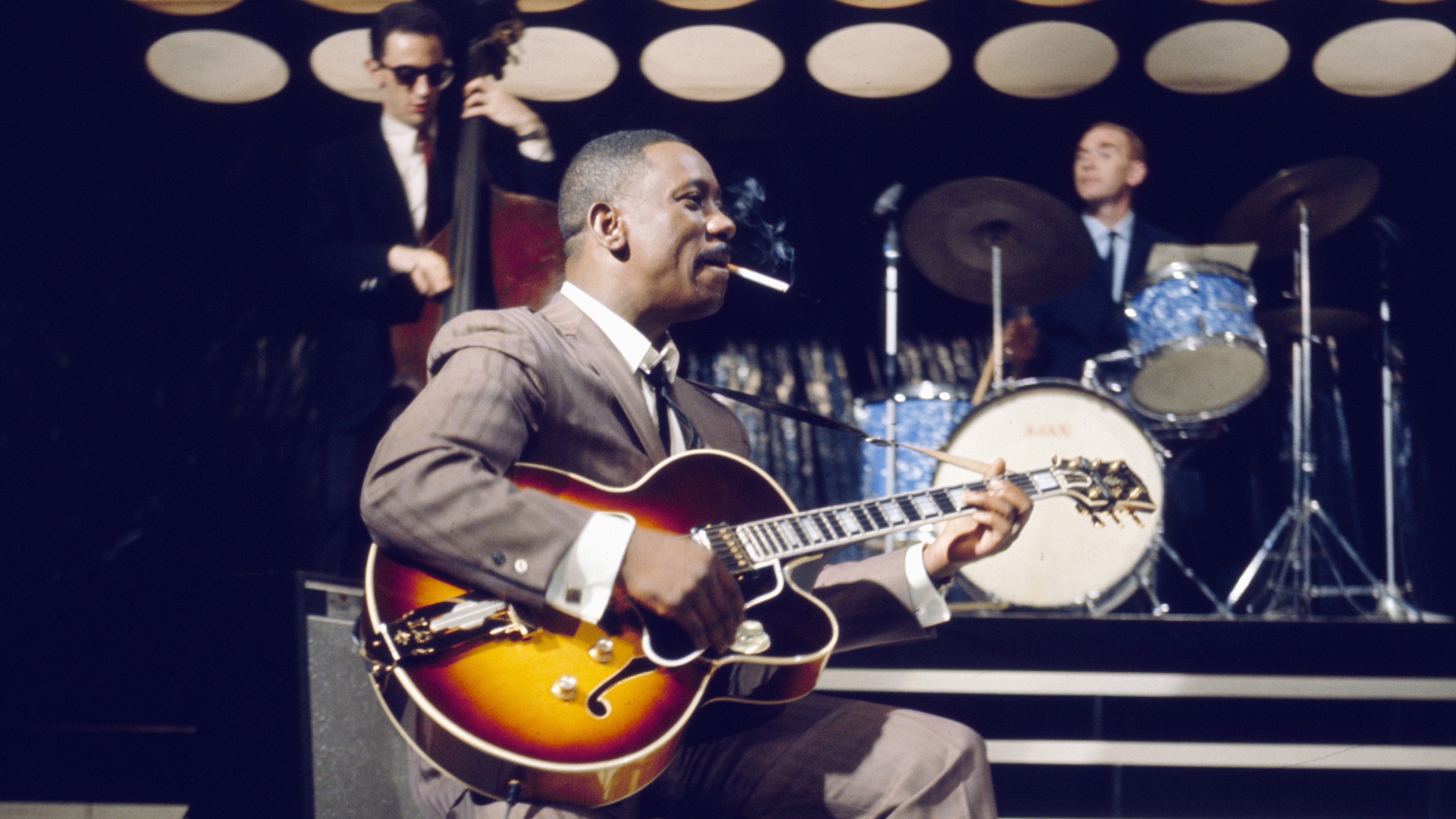
Extra material filmed for the Wes Montgomery documentary Wes Bound was recently shared on its official YouTube channel. It finds Wes's son Robert Montgomery talking to celebrated jazz player Pat Metheny paying tribute to his influence but also digging deeper into his legacy as an inspiration.
At 13 years old Metheny was able to meet Wes after a concert a few months before his tragic death from a heart attack, aged 45. In the video clip below, introduced by Wes Bound director Kevin Finch, Metheny talks about his journey as a young player and how crucial discovering Wes's music was. But it's testament to his maturity as a young musician that Metheny realised later in his teens that as much as he loved Wes Montgomery's playing, he needed to find his own path as a musician just as his late hero had done.
To me, the larger aspects of Wes's thing for me are really significant and not that talked about
"I was very lucky that the Kansas City scene that was near to where I grew up had openings where I could start playing, Metheny reflected in the clip above. "I started playing really young and I had a moment in there where I realised I loved Wes so much that I didn't want to do what he did, I wanted to do what he didn't; meaning he found him, he found his sound – he found his way of being himself. And to me that was a much larger lesson.
"From that night on, I was probably 16 at that time, every night I played; I want to [play like Wes] but I don't," added Metheny. "Because to me it's sort of like, the larger aspects of Wes's thing for me are really significant and not that talked about. There's a lot of real kind of obvious stuff but for me, the issues of Wes's thing that really had the most impact were the individuality that he brought to it that was so uniquely his but maybe more than that, the way he could take ideas and develop them.
The whole idea of being an improvising musician for me sometimes gets a little clouded up with the nuts and bolts of it
"To me that's really under-reported about his thing," says Metheny. "The whole idea of being an improvising musician for me sometimes gets a little clouded up with the nuts and bolts of it. But at its core it's about storytelling and Wes for me, above everything else, you could always follow it – he had this this amazing ability to describe very complex ideas in ways that were so clear and so well backed up with spirit and soul. But also if you just look at it in a linear way, he almost never played any idea that didn't have two or three – sometimes more – responses to what the idea was. Which is a lot like when you're talking, you keep it going. And you can feel that somebody who is an engaging speaker is talking in such a way that first of all, you can follow it [because] it's engaging but also as it's going it's giving you more information about the topic at hand.
On his website, Metheny reflected on watching Montgomery play in Kansas City in April 1968, and sneaking backstage after the show.
"They were playing a lot of the songs from the 'Verve' period - like Going Out Of My Head and stuff, but really stretching out on them," he remembered. "The main impression I have of the music was that he made it all look so easy – he was almost offhand the was he played physically. The instrument was sort of a non-issue for him, the music was just kind of flowing out.
I had the impression that he was glowing, like his guitar, with this golden light around him
"I went (snuck) backstage afterwards," Metheny recalled. "Wes was standing there talking to Clark Terry [trumpeter], holding his guitar by the neck with the body resting on his shoe while he talked to Clark. I had the impression that he was glowing, like his guitar, with this golden light around him, also like the gold stuff on his hip-looking L-5. I finally got the nerve to get his autograph and he was so nice to me and my friend, really made us feel great. I still have the autograph, which my mom mounted on a piece of wood a varnished over it, because she knew I was so into Wes."
Check out the full interview clip with Metheny above and subscribe to the Further Wes Bound YouTube channel as it will be sharing more exclusive clips in the future.







